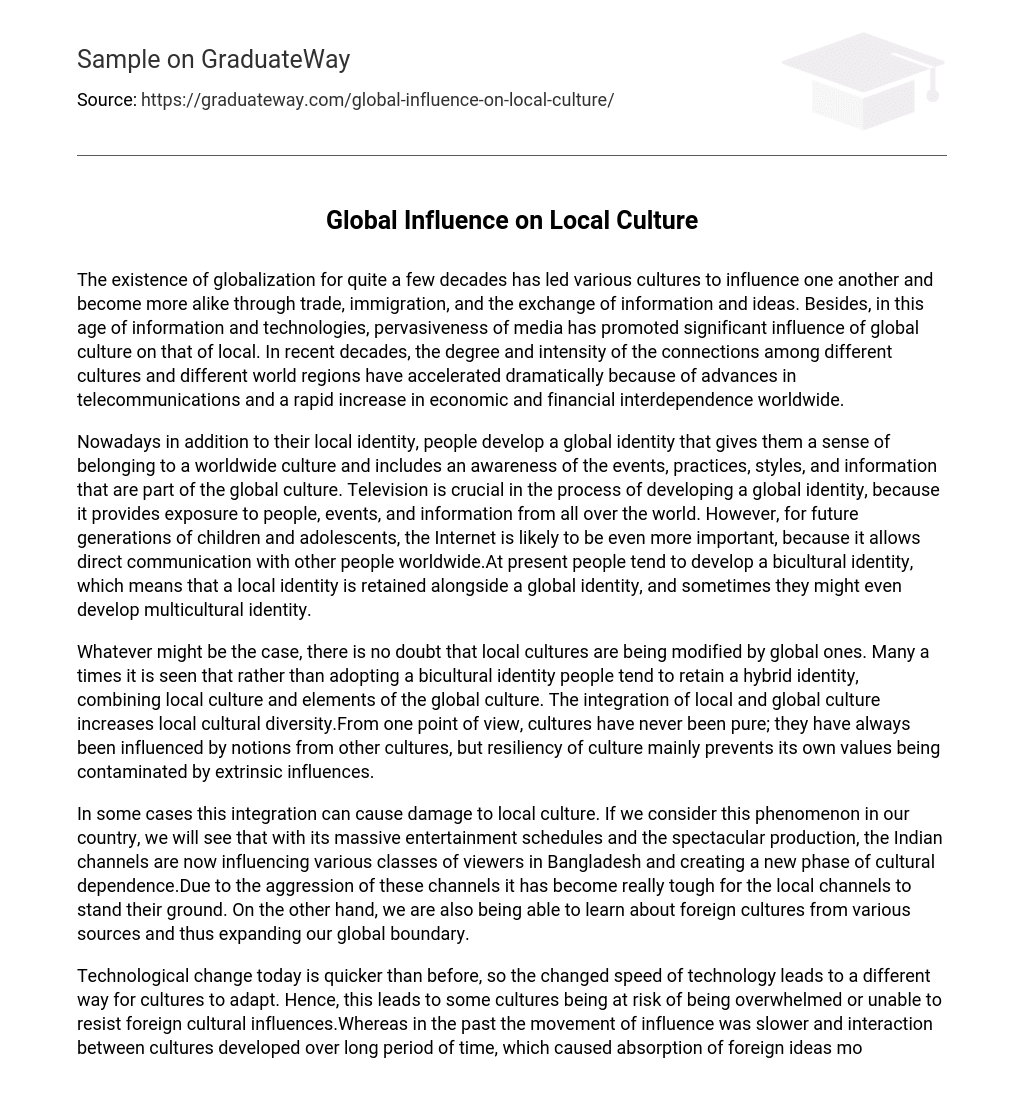The convergence of cultures has been brought about by globalization, encompassing trade, immigration, and the exchange of information and ideas. Additionally, the impact of global culture on local cultures has been magnified by the extensive use of media in today’s technologically advanced era. In recent times, the rapid interconnectedness among different cultures and regions worldwide has been greatly accelerated by advancements in telecommunications and increasing economic and financial interdependence between countries.
Today, people no longer solely associate themselves with their local culture; they also embrace a global culture. This worldwide identity provides them with a sense of belonging to a global community and encompasses knowledge about global events, practices, styles, and information. Television plays a crucial role in shaping this global identity by exposing individuals to diverse individuals, events, and information from different parts of the world. However, for future generations, the Internet is expected to have an even more significant impact as it enables direct communication with people worldwide. At present, individuals often possess a bicultural identity where they maintain ties to their local cultural roots while embracing their global identity. In certain cases, individuals may even have a multicultural identity.
Despite the circumstances, it cannot be denied that global cultures are altering local cultures. Many people choose to have a hybrid identity rather than fully embracing biculturalism. This involves combining elements from both local and global cultures. The fusion of local and global aspects ultimately enriches cultural diversity at a local level. It can be argued that cultures have never been completely pure, as they have always been influenced by external cultures. However, the resilience of culture primarily protects its core values from being diluted by outside influences.
Integration can sometimes harm local culture. In our country, the influence of Indian channels is evident, as they captivate viewers with their extensive entertainment schedules and impressive productions. As a result, a new phase of cultural dependence has emerged in Bangladesh. The dominance of these channels has made it challenging for local channels to compete. On a positive note, we are also gaining knowledge about foreign cultures from diverse sources, thereby broadening our global perspective.
Technological change today is faster than in the past, resulting in different ways for cultures to adapt. This can put some cultures in danger of being overwhelmed or unable to resist foreign cultural influences. In the past, cultural influence moved at a slower pace and interaction between cultures took place over longer periods of time. This gradual absorption of foreign ideas was less threatening compared to the present day. Overall, it is acceptable for global culture to influence local culture as long as it does not compromise its originality. However, any deviation from this principle should be avoided.





